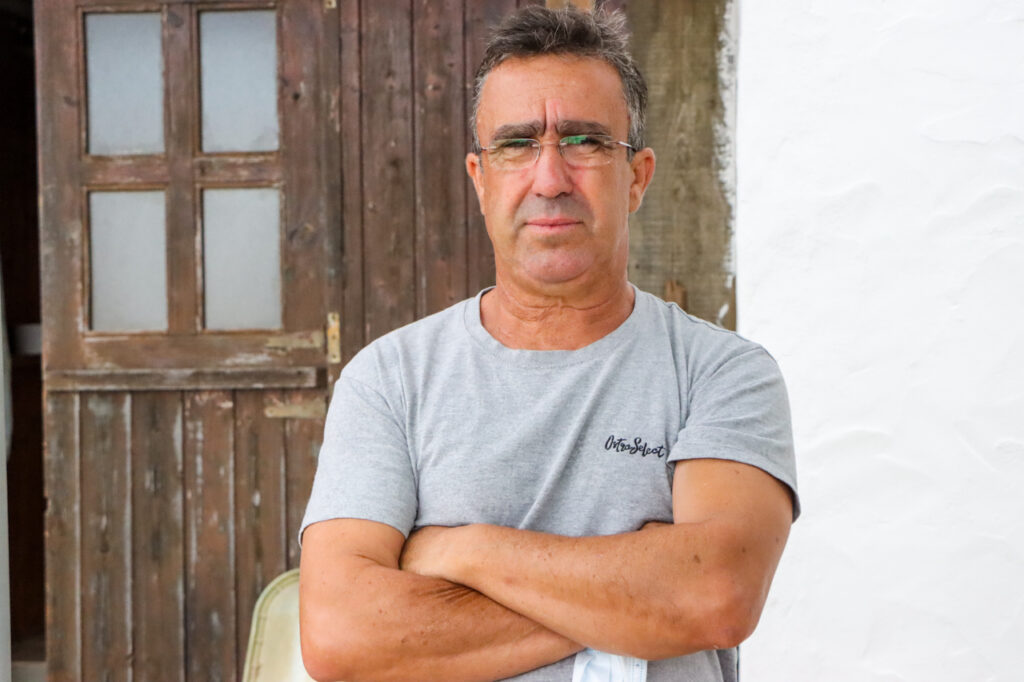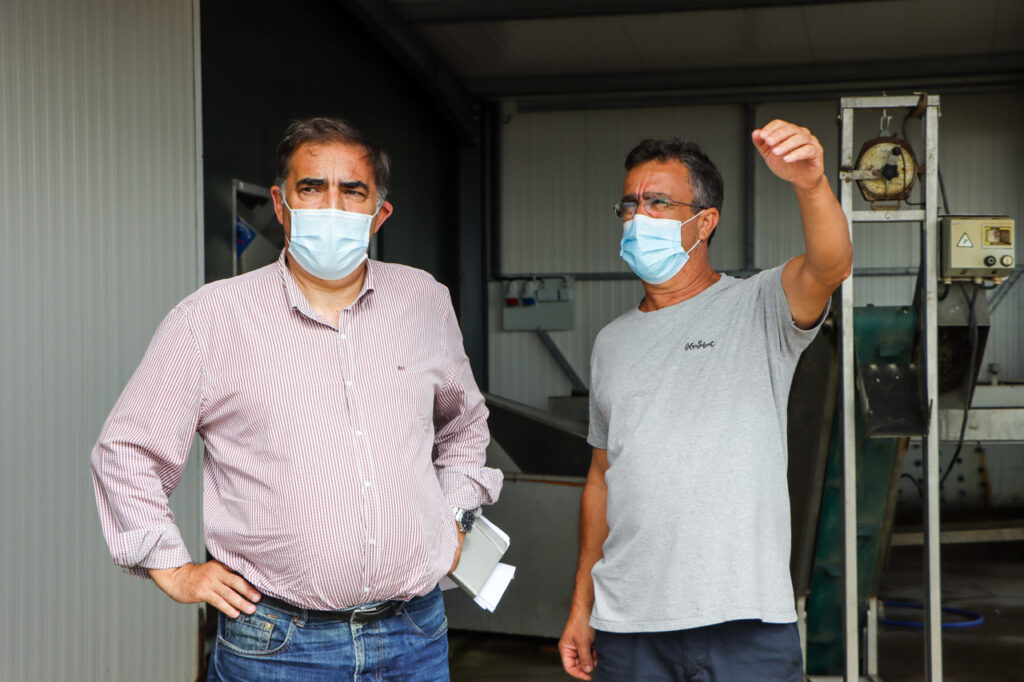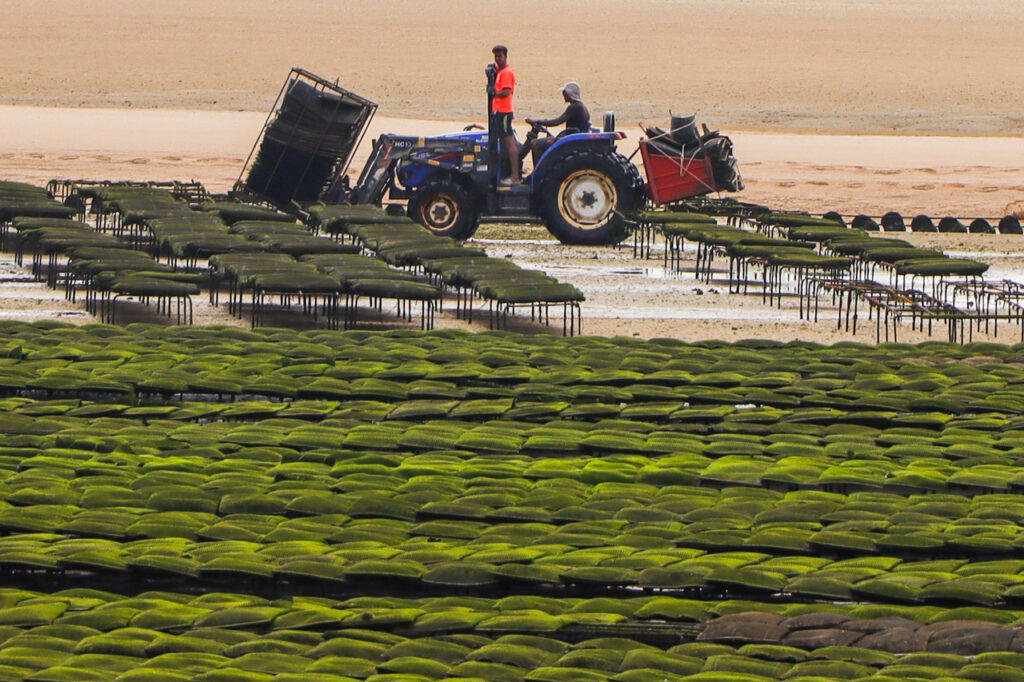There, on the tranquil banks of the Ria de Alvor, in the Vale da Lama area, in the municipality of Lagos, Covid-19 was not synonymous with the economic crisis for those dedicated to oyster production. But if in 2020 the pandemic has not affected oyster farmers, in May many of these entrepreneurs could see years of work falling to the ground if they are not allowed to automatically renew the licenses for their nurseries.
“Licenses are our main concern right now. They end in May 2021 and a 2016 decree-law says that there is no possible renewal, it is a new process and everything will have to go to a public tender», he explained to Sul Informação Rui Ferreira, from OstraSelect, during a visit by José Apolinário to the company's facilities, in Vale da Lama, on Friday.
The Secretary of State for Fisheries went to the site to understand the main problems faced by this and other oyster farmers in this area. And, as the Government member expected, it was the titles of use that stood out in the list of problems presented.
“We spent many years investing and working here and now, all of a sudden, we don't know what the future will be. There is money here from the European Union and colleagues who have funded projects in progress», said Rui Ferreira, one of the main oyster producers in the Algarve.

This is not, even so, a sentence passed to the nurserymen, assured José Apolinário.
"We have a Transitional Water Aquaculture Plan to go to the Council of Ministers and which we want to approve by the end of the year," he explained.
«This plan aims to consolidate the existing structures and then link them with everything in the Water Law. Because people have invested here for many years and this situation needs to be safeguarded. What we want is to consolidate and legitimize what already exists», added the Secretary of State for Fisheries.
The fact is that, admits the member of the Government, there are problems if the position of those who already exercise the activity is not safeguarded, many of them for decades, as is the case with Rui Ferreira.
“With the contest, any entity with money comes here and offers more. Although they have preemptive rights, they may not be able to follow the bidding. This was a question that was raised five years ago and will now have to be revisited», assured José Apolinário.
Another concern of the owners of nurseries in the Ria de Alvor are the sources of pollution, namely in the area in front of the village that gives its name to this lagoon area, as well as «exotic species, which are a problem».
As far as pollution is concerned, José Apolinário recalls that five years ago, following a large mortality of oysters, namely in the OstraSelect nurseries, this question arose.
At the time, several hypotheses were put forward, including "whether it was a water problem or if there was a lot of production and overload in the Ria de Alvor", recalled the secretary of state.

However, the nurseries, in particular Rui Ferreira, with whom the Sul Informação spoke in 2015, always believed that everything was due to environmental factors, namely pollution.
After five years, there has not been a mortality of the same proportions again. This does not mean, however, that there are no problems with pollution.
«The biggest problem is Alvor, in front of the village, which is in zone C. There is something there that is not right. I suspect it is because of the sewers, but it is not known exactly where they come from», said Rui Ferreira.
“There is already zone C. We here [Vale de Lamas], the prohibitions we have had so far are derived from plankton and toxic algae. But we are a bit afraid», he confessed.
Problems aside, OstraSelect has already started «preparing for Christmas», which is the peak season for consumption of this bivalve in France, the market where almost all the oysters produced in this farm in Lacobrigen go.
“This year I want to reach 150 or 180 tons. Despite Covid-19, we have always been producing, we never stopped. Just this week I sent seven tons to France», revealed the nurseryman.
The pandemic even ended up helping this producer, taking into account that, this summer, «the French are consuming a lot».
“In Arcachon, a bathing area that attracts a lot of people from Bordeaux and Paris, there are a lot of people there and they are consuming a lot. People did not go abroad on vacation», concluded Rui Ferreira.
Photos: Barbara Caetano|Sul Informação
Help us to do the Sul Informação!
Contribute your donation so that we can continue to make your journal!
Click here to support us (Paypal)
Or use our IBAN PT50 0018 0003 38929600020 44



















Comments